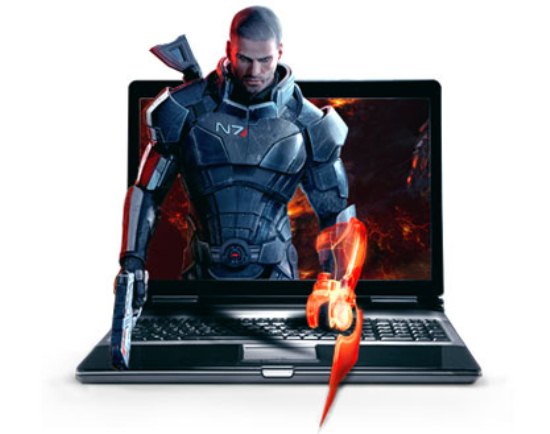The hardest part about buying a laptop is – you don’t know exactly what you are getting. There are so many laptop brands and models out there, all promising to give you the best performance, that it’s very easy to get confused. To make it easier for you, start by asking yourself, “Why do I need a laptop?” and “How much do I plan to spend for it?” The answers to these two questions can point you in the right direction, and save you a lot of money and headache. Previously at Blogger’s Path, we have provided Things You Should Consider Before Buying a Laptop and Things You Must Consider Before Buying Tablets. So, why do you need a laptop? Let’s take a look –

For Office and Multimedia Applications
For office use and the business traveler, Ultrabooks are the best choice. These are ultra-thin laptops, not more than 0.8 inches at the thickest, yet they pack a lot of power. And mind you, they also come with a very high price tag. For example, some HP Ultrabooks retail for more than $1000 each. If you’re lucky to secure some hp coupons then you could at least chop off a hundred or so from their price.
Ultrabooks are designed for people who need lightweight laptops but won’t settle for the inferior specifications of netbooks. They are perfect for running office applications, creating presentations, playing multimedia files, and of course, for looking great. They use either Intel Core i3, i5, or i7 processors to pack some serious power. Utrabooks are so good that experts predict that it will make up 40% of all laptops in 2012.
For Hard Core Gaming
If you need a laptop so you can play the latest shooter games, then you’ll need one with more power. More specifically, you’ll need a laptop with a dedicated graphics card from ATI or NVidia with at least 1GB memory. If someone points you to a laptop that has integrated graphics don’t even bother. That’s beside the usual Intel Core i7 or equivalent AMD CPU that is needed to handle the massive processing needs of the best games. And of course, you’ll want it loaded with RAM, minimum of 4GB and as much as 16GB in really good models. SSD hard drives are really nice if you want faster OS boot, and game map load times, but his is a option can a do without if you want to save a few dollars. These are ultra-powerful laptops so expect them to carry an ultra-high price tag also.

Budget Laptops
These are under powered and low priced laptops that are good enough for web surfing, video streaming, office applications, and some light multimedia applications. They usually utilize last generation CPUs, RAM, etc., and are a excellent buy if you don’t need a lot of power. Just because they are low price doesn’t mean they are bad. They have decent CPU power, usually 1-2 GB of RAM and a decent screen. Their main weakness is hard drive size, and integrated graphics. One thing to look for in a budget laptop, that is pretty standard on higher end ones, is HDMI out. It makes it easier to hook it up to your TV for streaming. This is actually an option on lower end models. If you want stream from your laptop to your TV, make sure you check. Students and home makers prefer budget laptops because their price can be as low as $400.
For those who need a budget ultra-portable, the small screen netbooks might be just as good. They usually come with less RAM, less hard drive space, and a lower power CPU for longer battery life. These are a great choice if you are just looking for the basics in a ultra-portable platform.
So, how much are you willing to spend for it?
Obviously, your budget will determine just how good your laptop will be. There are a lot of upgrades that you can tuck into a laptop to improve its performance like faster CPU, larger HDD capacity, more RAMs, and others. A lot of people over spend in their upgrades. They load their laptop with unnecessary power and end up not using them. The rule is, pay only for what you need. For simple performance gain, the most sensible upgrade is by adding a lot of RAM. Test shows that in most common applications, it is better to add more RAM than invest in higher CPU speed.




